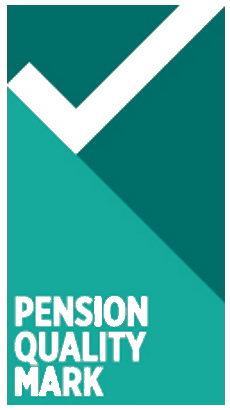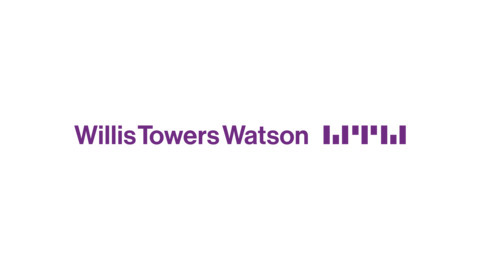Outsourcing makes sense for so many business services, from payroll to IT services to telephones. Businesses need to concentrate on their core activities to drive shareholder returns, so passing responsibility for non-core activities to external experts makes both sound commercial and business sense. It should come as no surprise that pensions are moving in the same direction – and for many of the same reasons.
Pensions remain one of the most important parts of any employee reward package. But as we’ve seen in this series, things are changing rapidly. The way we are employed is changing as more people opt for freelance contracts. We not only want to be employed in different ways, but also have greater flexibility around everything from our hours to our location. When it comes to rewards we’re also demanding a more personalised approach. Where one person might want extra holiday, another would prefer an increase in their pension benefits.
Outsourcing defined contribution (DC) pension provision to a third party brings benefits to both the business and its employees. Not only are there economies of scale, but handing over management to people whose sole aim is improving retirement outcomes and increasing employee engagement with their pensions, is beneficial for a business, too. It also frees up management time to focus on those HR issues which directly impact on the development of the business – be that employee retention or training and development.
In short, it’s a win-win for everyone. The employee can get a better retirement outcome, access to industry leading technology and increased investment innovation. And, because the outsourcer passes on the benefits from their economies of scale and innovation, the employee may also see a reduction in cost when compared to the charges paid as part of a single employer trust. The business saving can also be significant through eliminating its costs of running the scheme. Employers who have recently outsourced their employee pension provision to LifeSight are seeing savings of between £0.5 m and £1 million each year. They no longer incur any expenses on pension scheme administration, investment advice, member communication, legal or independent trustee services, not to mention the hidden internal resource costs.
More importantly for many, is the reduction of risk associated with running a pension scheme; from training competent trustees, to the investment time and costs to enable efficient decision making, to dealing with processing errors and complaints – each with the potential to negatively impact on an employee’s pensions savings and the business’s profit. Future hikes in governance and compliance costs for increased regulatory standards will also be avoided.
It’s worth noting that for most DC schemes, over half of members no longer even work for the business: yet the cost of looking after their accrued pension into retirement remains a burden for that business – unless that pension is outsourced.
As we’ve seen in an earlier article, technology is playing a more and more vital role in allowing employees to make informed decisions about their pensions through apps, targeted guidance and other forms of personalised online interfaces. Providing such technology is something even the largest businesses would be hard pressed to provide. Once again, the ideal outcome is proving more and more to be a case of ‘leave it to the experts’.
So having made the decision to review (and 33% of companies with trust-based DC schemes plan to do just that in the next year alone) – and involving your existing trustees to enable an effective decision making process – just how should you set about identifying the best outsourcing partner for your pension plan and your employees?
First, ensure you undertake an independent tendering process. There are plenty of advisors who can help ensure this is smoothly carried out. Get into the detail. Does the outsourcer provide appropriate investment mixes for the various employees and their complex life-stages? Will you be protected against any future changes in legislation? The ability to achieve high levels of employee engagement is also critical to drive better retirement outcomes. What is achieved and how? You need a partner who has the right technology to gain that engagement, and avoid anything which smacks of gimmickry or ill-thought-through data protection risk.
It’s also vital to ensure that master trusts are authorised or have solid, advanced plans in place to submit their authorisation application. Take a close look at the Trustee Board governance. What is its quality and level of independence – and in particular the diversity of skills they can demonstrate to truly focus solely on looking after your employees and their retirement (and post-retirement) outcomes?
Finally: value for money. It isn’t just about overall price. Cheapest isn’t always best. So you need to look closely at the member outcomes to truly assess value for money. Investment returns, innovation and levels of member engagement to drive better member outcomes, are a far better indication of value delivered than fees alone.
Pensions are, and will remain, a critical part of any employment package. Employment itself is changing, as are pensions themselves. As we have seen, many firms are already reviewing their pension provisions, and more and more opting for DC master trusts. These are set to increase their market share from 12% today to around 26% in the next three years. Outsourcing is becoming the norm. That means that the onus more than ever is on the business to secure a provider which can deliver the best levels of engagement and return for each and every member, whatever their employment status or life stage.
But with effective planning – and by addressing the key issues outlined above – it is possible to not only address the essential needs of those members, but to also provide a pension which meets their needs, and the needs of the business, both now and well into the future... whatever that future may hold.
Fiona Matthews is managing director at LifeSight, Willis Towers Watson’s master trust pension scheme












